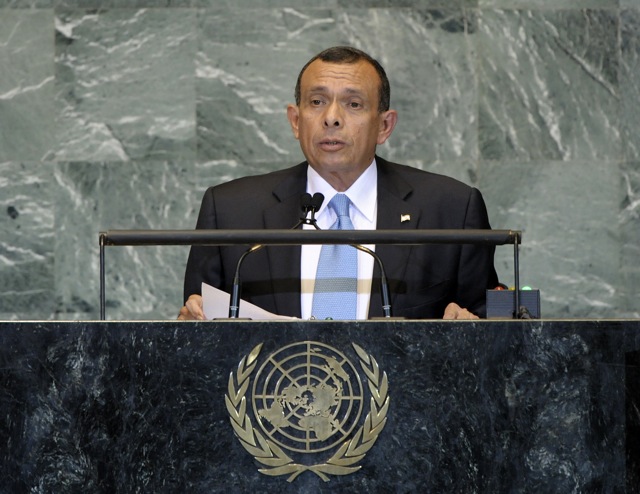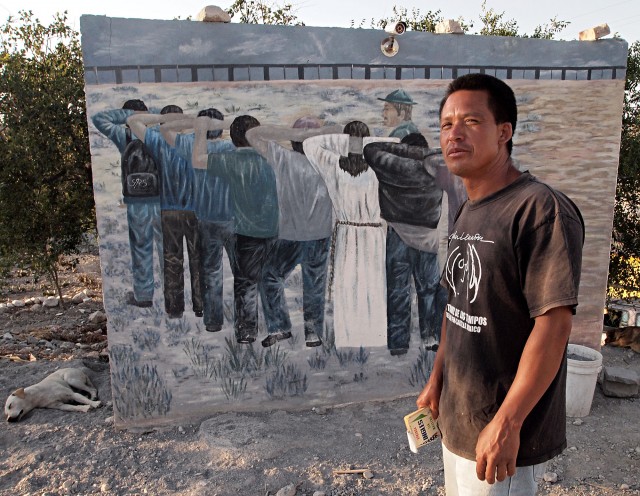
Dispatches, Uruguay
Uruguayan Congress Fails to Gain a Majority to Annul Amnesty Law
May 20, 2011 By Mariana Bueno
MONTEVIDEO — After an intense 15 hours of debate, the proposal to annul Uruguay´s amnesty law failed when the necessary votes did not reach a majority. In this historical session of Congress, the ruling coalition fell short by one vote to annul the law.
The amnesty law, created in 1986 at the beginning of the new era of democracy in Uruguay and known in Spanish as the Ley de Caducidad, prevents the prosecution of military officials from the 1973-1985 dictatorship for crimes against humanity in which thousands of Uruguayans were tortured, killed, or simply disappeared.
Uruguay’s Frente Amplio, the ruling coalition composed of several leftist parties, initiated the proposal in an attempt to overturn articles in the existing law to allow for the prosecution of military crimes.
Even though the proposal successfully passed through the Senate last month, it was unable to pass through the House of Deputies.
The House, comprised of 99 deputies, contains 50 seats from the Frente Amplio. However, ruling coalition deputy Víctor Semproni walked out of the debate, refusing to vote, and left the ruling coalition one vote short, tied at 49-49 with the opposition in the lower house.
As a result, the proposal failed to achieve the majority of votes necessary to annul the amnesty law.
Before walking out, Semproni ratified his decision in the assembly to “fight to remove the amnesty law from the legal system of Uruguay”, saying the proposal before Congress Thursday was ineffective and could cause greater difficulties in the near future. He said there were better avenues to erase “this stain” in a timely manner and with better guarantees.
In the past, Uruguay called two national referendums to annul the amnesty law. In both instances (1989 and 2009) Uruguayan citizens voted to back the existing law. In addition, the Uruguayan Supreme Court in 2009 declared the amnesty law unconstitutional.
Thursday afternoon, hundreds of people gathered outside the Legislative Palace to closely follow the debate. The crowd was as divided as the congress. Many people believe the government is failing to listen to the voting majority of Uruguayan citizens who have already given their opinion via a referendum on the issue.
Lena Navarro, a student of Communication who followed the debate last night outside the Legislative Palace, believes that politicians should respect the results of the past two referendums. “People are tired of this issue and we just want to move forward and focus on the issues of our generation.”
On the other hand, Lucy Peña, who lived through the dictatorship, said she only came to protest in support of the mothers whose children disappeared in the dictatorship. “They are still waiting for justice, I can´t even imagine how are they are feeling right now.”
Many protesters in the crowd were workers called to strike by PIT-CNT – the largest workers union in Uruguay. Fernando Pereira, president of the organization, said that regardless of the outcome, “we are not going to remain resentful; we are going to continue the fight against impunity in this society.”
Last Wednesday, while attending the festivities of Uruguay´s bicentennial, President José Mujica gave a speech in which he also addressed the upcoming Congressional session. Mujica has openly questioned the effectiveness of this recent proposal.
Mujica stated that “we cannot transfer the frustrations of our generation to the new generations; I say this as an old man who once had a gun in my belt.” Mujica, now 74, was tortured and imprisoned for 14 years at the hands of the dictatorship as the former leader of the 1970s urban guerilla movement, the Movimiento de Liberación Nacional – Tupamaros.
Although President Mujica has the right to veto the legislation, he has expressed his unwillingness to do so. He has cautioned the deputies against the political and economic dangers that the annulment might bring but has offered his support to back the decisions of the coalition party.
The congressional result came out on Friday, the same day as the annual March of Silence, which commemorates the victims who died under the dictatorship. Today also marks the 35th anniversary of the killing of two Uruguayan deputies by the military government.
This year’s march is expected to draw a large crowd in response to the recent Congressional session.
Photo: peregrinari @ Flickr.






3 Comments
[…] Latin America News Dispatch writes about the Uruguayan Congress' decision to uphold a 1986 amnesty law that “prevents the prosecution of military officials from the 1973-1985 dictatorship for […]
[…] Latin America News Dispatch writes about the Uruguayan Congress' decision to uphold a 1986 amnesty law that “prevents the prosecution of military officials from the 1973-1985 dictatorship for […]
[…] για την απόφαση του Κογκρέσου της Ουρουγουάης να διατηρήσει σε εφαρμογή το νόμο αμνηστίας του 1986, που ”αποτρέπει την δίωξη στρατιωτικών […]
Comments are closed.